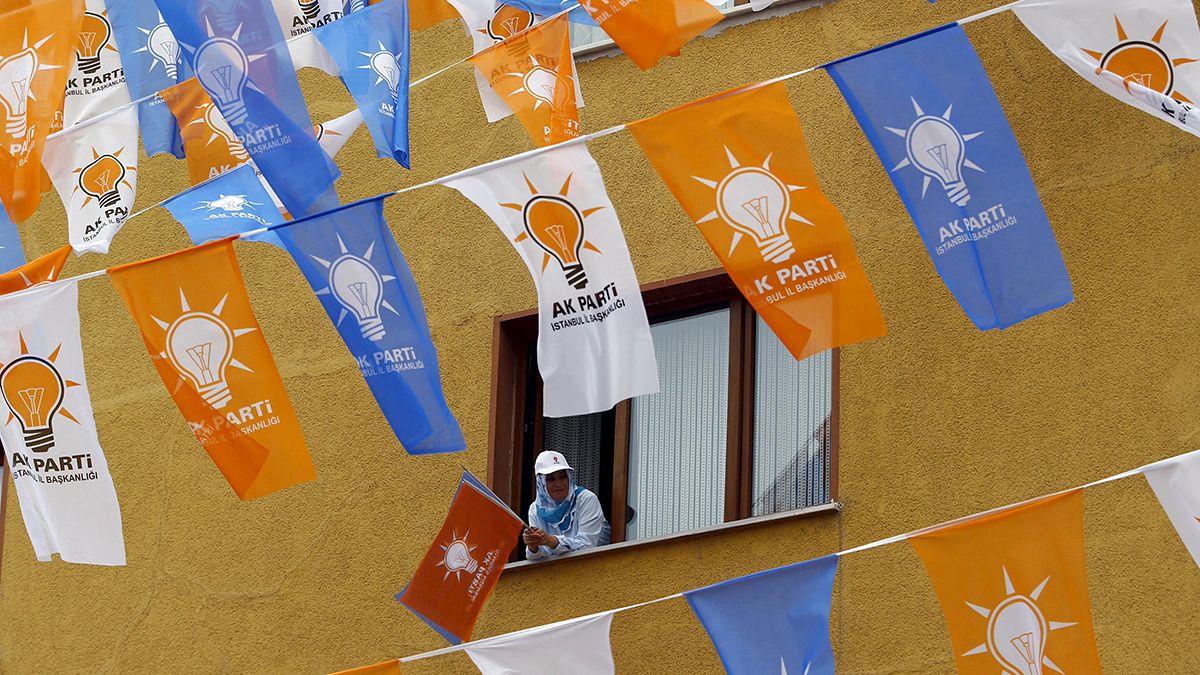Turks go to the polls on Sunday, June 7, to elect a new parliament, called the Grand National Assembly, which will determine the government that will
Turks go to the polls on Sunday, June 7, to elect a new parliament, called the Grand National Assembly, which will determine the government that will lead Turkey for the next four years.
For the first time, the Justice and Development Party (AK Party), which has been ruling the country for the last 13 years, is entering a general election without its leader, Recep Tayyip Erdoğan. Ironically, a political party largely backed by Kurds who have often been sidelined and repressed by Ankara is likely to be the kingmaker of the elections.
Turkish electoral system: How it works?
Turkey is ruled by a parliamentary system where the prime minister holds the real powers. The role of the president is symbolic. The prime minister is the head of the party that gets the majority in the parliament, composed of 550 members, elected for 4 years term.
On Sunday, 20 political parties and more than 150 independent candidates will be competing to enter the Parliament. However, only a few of them can achieve that objective because of the highest electoral threshold in the world. The Turkish electoral system requires political parties to get at least 10% of the vote at the national level to enter parliament. A political party may win the elections in some cities, but if it does not obtain 10% of the national vote, its votes are distributed to other winning parties. The system, established under the instructions of military rulers after the 1980 military coup, favours big parties by making it hard for smaller ones to gain any foothold.
Who are the favorites?
According to the polls; only three big parties seem to have secured their places in the parliament. These parties are the ruling AK Party, led by Ahmet Davutoğlu, current prime minister; the center-left opposition Republican People’s Party (CHP), led by former bureaucrat Kemal Kılıçdaroğu and the Nationalist Movement Party (MHP). AK Party is still the favorite in the elections around 40 % of votes despite its 13 years in power, whereas CHP is struggling to reach 30%. The nationalists’ votes are estimated around 16%. The big unknown of the elections is whether the pro-Kurdish People’s Democratic Party (HDP), competing for the first time as a party, will be able to cross the 10% national threshold. Polls suggest that it is very close to the 10% mark.
What is at stake?
Erdogan has publicly declared that he will not be a symbolic president in the mould of his predecessors. Constitutionally, the president is obliged to sit above party politics, however Erdogan has been at the centre of the election campaign with big public meetings organised around the country and even TV appearances. He has been campaigning for a presidential system, rather than the current parliamentarian model, and wants AK Party to obtain a sufficient majority to change the constitution. For this, AK Party needs to have either 330 seats to be able to ratify the change through a referendum or 367 seats to achieve the goal without a popular vote.
The big challenge for Erdogan and AK Party is the pro-Kurdish HDPs electoral performance on June 7. If it passes the 10% threshold, it will take seats that are otherwise set to be reallocated mainly to the AK Party, especially in the Kurdish regions. According to some observers, the pro-Kurdish partys success may even make it difficult for the AK Party to form a majority government.
In the past, Kurdish politicians have overcome the problem of the threshold by standing as independent candidates. For the first time HDP is entering the elections as a party. If the gamble fails and it is unable to reach 10% at national level, the exclusion of Kurds from political representation would risk complicating the ongoing peace and reconciliation process.
See our full coverage of the election and follow events live on euronews.com from 6pm on Sunday June 7.
